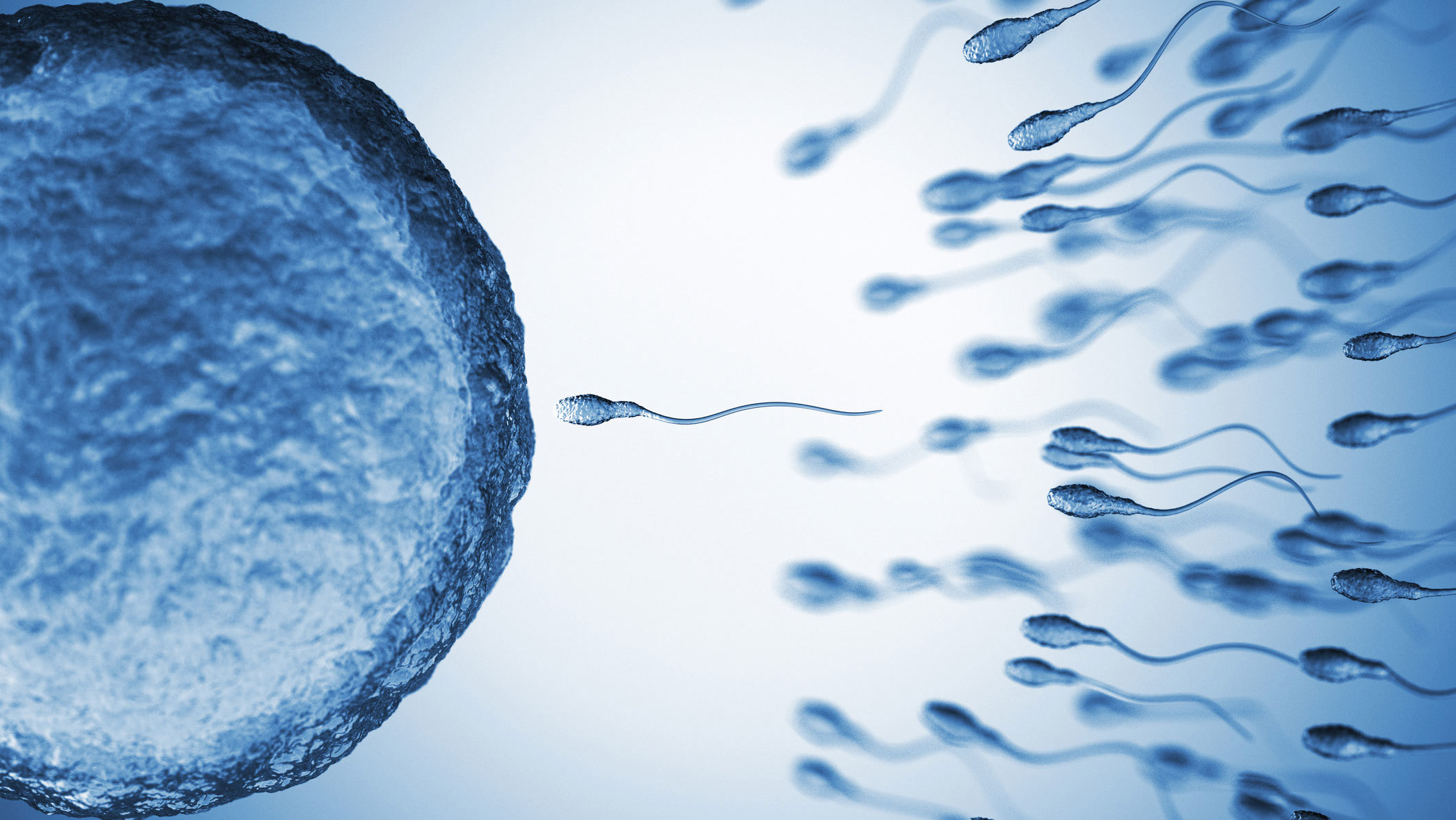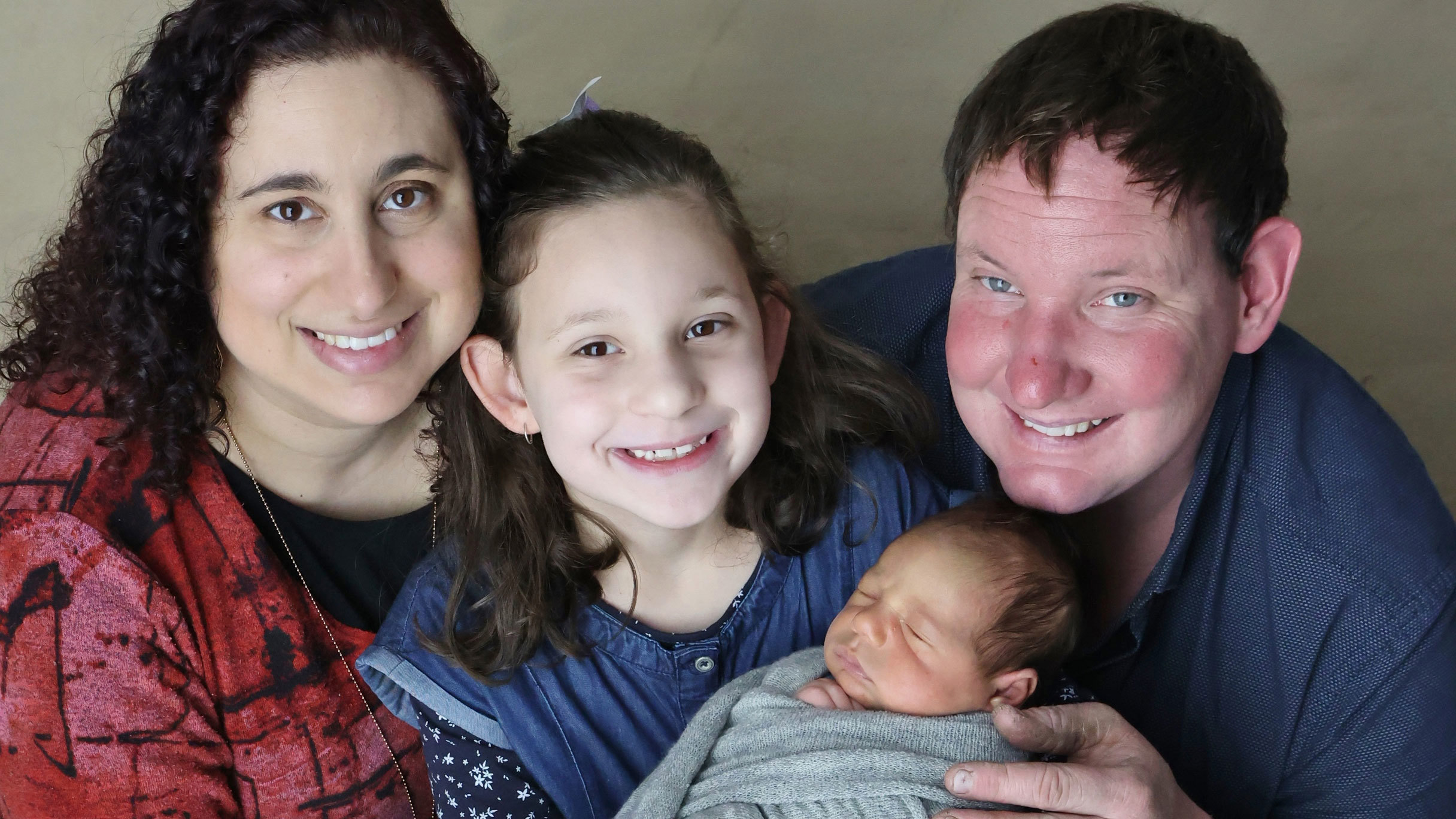A leading Australian IVF expert has sounded the alarm on declining male fertility, saying people need to be aware about the worrying factors that could be playing a part, including toxins in our environment.
The warning comes as new data released today by the University of NSW shows one in three IVF cycles undertaken by couples trying to conceive is due to male infertility.
Researchers from the university began including information about male fertility in its annual Assisted Reproductive Technology in Australia and New Zealand (ANZARD) report last year.
READ MORE: Is Temu legitimate? How the Chinese-owned app has taken global markets by storm
Today's latest report, based on 2021 data, shows the underlying reason for male infertility remains unknown in almost three-quarters of cases.
The most common confirmed cause was a previous vasectomy, which accounted for 8.6 per cent of cycles undertaken for male infertility, while genetic conditions accounted for 3.9 per cent.
Melbourne IVF medical director, Dr Fleur Cattrall, said in her experience it was closer to half of cases where male infertility issues were a factor in couples struggling to conceive.
"It may not be the primary reason that fertility treatment is needed, but it might be a factor that we need to address in half of cases," Cattrall said.
Concerns about declining sperm counts and sperm quality in men have come to the fore in recent years, but have been around for decades.
In 1992, a groundbreaking and controversial study published in the British Medical Journal by Danish researchers found sperm counts in men had fallen by 50 per cent over the previous 50 years.
Multiple other studies have since confirmed these dramatic findings.
In November last year, international researchers published a study using global sperm samples taken from 1981-2013.
The study found a 62.3 per cent decline in total sperm counts and a 51.6 per cent decrease in sperm concentration – the number of sperm per millilitre of semen.
"The data suggest that this worldwide decline is continuing in the 21st century at an accelerated pace," authors of the report concluded.
"Research on the causes of this continuing decline and actions to prevent further disruption of male reproductive health are urgently needed."
What's behind declining sperm counts?
Scientists have shown there are a range of factors that can lead to male infertility, including obesity, diseases and genetic issues.
Cattrall said there was no doubt lifestyle factors, which had led to a rise in obesity and diabetes over the past few decades, were having an impact on sperm quality.
"We have certainly seen an increase in obesity and diabetes over time, and this then affects sperm quantity and quality," Cattrall said.
"A high junk food diet has been shown to correlate with poorer sperm numbers and quality as well."
Cattrall said it was very likely that a myriad of environmental factors, such as pollution and chemical exposure, were also at play.
"There are endocrine disrupting molecules, which are a lot of chemicals that come from plastics, and they're molecules that mimic body hormones," Cattrall said.
"Then there's an increased exposure to heavy metals and pesticides."
University of Virginia Associate Professor of Urology Ryan Smith has been studying how chemicals in the environment are affecting male fertility.
While researchers can't expose humans to harmful compounds in order to measure outcomes, the weight of evidence was growing about the associations between toxins in the environment and decreasing male fertility, Smith wrote in a piece in The Conversation in 2021.
"Plasticisers are found in most plastics – like water bottles and food containers – and exposure is associated with negative impacts on testosterone and semen health," he wrote.
"Herbicides and pesticides abound in the food supply and some – specifically those with synthetic organic compounds that include phosphorus – are known to negatively affect fertility."
Similarly, air pollution and radiation exposure from laptops, mobile phones and modems were also likely contributors, he wrote.
Cattrall said declining sperm quality was an important issue the IVF industry was well aware of – and Australians and the government should be too.
"I think as a community we need awareness. We need our governments to be watching what plastic exposure and chemicals are being put into our environment," she said.
"Individuals also need to be aware that lifestyle factors can have a significant impact on their health."
'No specimen provided'
One Melbourne couple who know all too well the struggles of male infertility are Sarah and Steven Gillam.
The pair spent three years trying to conceive naturally, before going to their GP when Mrs Gillam did not fall pregnant.
"I still remember everything about the appointment to this day," Mrs Gillam said, adding that their doctor recommended her husband supply a sperm sample so that his sperm count could be tested.
"When the results came back, it said 'no specimen provided'," Mrs Gillam said.
Confused, they repeated the test, but got the same results.
"We were told there's actually nothing there and you won't be able to conceive naturally, you will need IVF," Mrs Gillam said.
"After that appointment, I was sitting in the car and I just cried."
Mr Gillam was diagnosed by a specialist with Klinefelter syndrome, a genetic condition affecting males who are born with an extra X chromosome.
Men with Klinefelter syndrome often have low testosterone and produce little or no sperm.
The couple went to Melbourne IVF clinic where Mr Gillam underwent testicular surgery to see if any sperm could be found.
"Steven went under the knife and they found 11 sperm. Just 11. Normally males produce millions," Mrs Gillam said.
Meanwhile, Mrs Gillam underwent an egg collection procedure, in which 12 eggs were extracted.
"We got a call to say that six embryos had survived," Mrs Gillam said.
Those six embryos proved to be all the couple needed to create their family of four.
The couple's daughter Chloe is now eight years old and son Charlie is one.
"We are forever grateful, we love our children and we love being parents," Mrs Gillam said.
"I couldn't imagine what our life would be without that technology being available.
Mrs Gillam said she was passionate about sharing her family's IVF journey to raise awareness about male infertility and to encourage couples to seek help
"I always say, if you want to have a family, don't try too late. If you find out that you've got infertility issues, it's a long road," she said.
Problems relating to female fertility had traditionally attracted the lion's share of attention, Cattrall said.
"I think historically we've always focused on the female and the focusing on male fertility has been a bit behind," she said.
"It's important for (men) to be talking about their fertility issues, because women have been doing this for a number of years now.
"And it's important for men to know they're not alone, particularly when half of infertility cases are male-factor related."
Contact reporter Emily McPherson at emcpherson@nine.com.au






